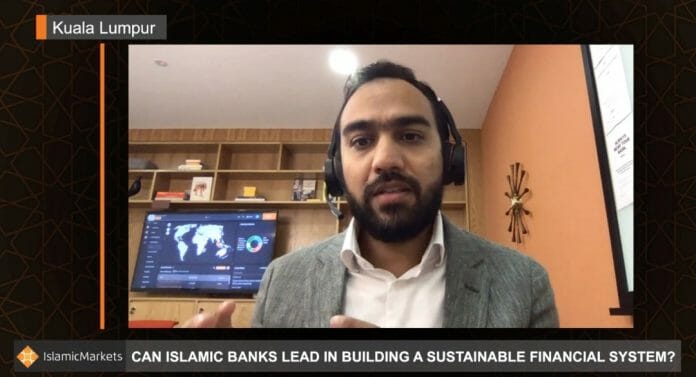The IslamicMarkets.com organised an exclusive leadership interview with the CEO of HSBC Amanah, Arsalaan Ahmed (Oz), titled ‘Can Islamic Banks Lead in Building a Sustainable Financial System?’
Interviewed by Daud Vicary, Chairman of Advisory Board of IslamicMarkets, Arsalaan shared HSBC Amanah’s expertise in championing sustainability and explained how Islamic banks should lead by example in driving sustainability.
He also highlighted the role of Malaysia’s Value-Based Intermediation (VBI) in empowering Islamic banks and the critical role of leadership in instilling a sustainability culture within Islamic banks’ value chain.
When asked about the United Nations (UN) Sustainable Development Goals (SDGs) and Islamic finance alignment, Arsalaan shared the example of the world’s first UN SDG Development Goals Sukuk that was launched in 2018 by HSBC Amanah and how the nature of Islamic finance is closely aligned with sustainability. Arsalaan also emphasised how willingness and ability are key ingredients for Islamic banks to drive sustainability.
When asked how HSBC Amanah’s was planning on becoming the HSBC Group’s first sustainable bank, Arsalaan shared the bank’s plan to grow their triple bottom line (People, Planet, Profit) assets. Arsalaan added that HSBC Amanah is leading with this project because of their early work and progress on VBI, and “the nature of Islamic finance that aligned with sustainability in a way that will resonate with people”. He also noted that HSBC Amanah benefits from HSBC Group’s leadership in Sustainability. Arsalaan asserted that the vision is to create a “mainstream commercial bank as a sustainable bank”.
Arsalaan concluded the session by stressing the need to accelerate practitioners’ adoption of sustainability and Environmental, Social, and Governance (ESG) practices, and the importance of innovation especially in these desperate times where equity-based contracts and Islamic social capital can help innovate solutions.
The live session also covered other points on the importance of purpose-driven organisations to be able to innovate and drive change, how to define “sustainable banks”, the significance of non-financial disclosures as a sustainability metric, and how sustainability goes beyond the environment variable as evidenced by the Covid-19 social crisis.









